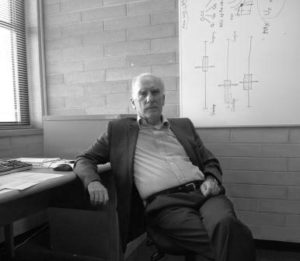
Flinders University’s Adjunct Professor Peter Sloane doesn’t look unlike an English football club manager from the 1960s.
Which is fitting, because when he leans back in his chair, crosses his leg and starts talking about football, he can probably tell you more about how it all works than some of the most successful managers in the history of the game.
Professor Sloane, a life-long Manchester City fan, is one of the world’s leading experts on the economics of team sports. He specialises in English league football and is referred to as the founder of sports economics in Europe.
How much players get paid, the price of tickets, how much goes to the men in grey suits, how clubs make so much money but still go bust; and the biggest question of all – do the clubs really care about anything other than cold, hard cash? These are topics discussed to the point of obsession by sports fans all over the world, and to which Professor Sloane is one of the few people who can offer some qualitatively sound answers.
In spite of the massive growth in revenue and investment in the beautiful game, the answer to the biggest question of all, Professor Sloane believes, is actually yes, that the clubs do care about something other than cash.
He supports the utility maximisation theory of sports economics, which says the primary objective of clubs in the English leagues is not to make money but to win games, and that all of the revenue generated is simply a means to the end of achieving this.
The merits and disadvantages of salary caps, the US profit-maximisation model versus the European utility-maximisation model, Financial Fair Play regulations, TV income, revenue sharing and the importance of maintaining uncertainty of outcome in game results are just some of the issues he is able to break down and talk about in detail.
Professor Sloane, who is currently co-editing the Handbook of the Economics of Professional Football, also has some interesting thoughts about Australian sports, which he says appear to have adopted a mixture of elements from the US and European models.
He is an engaging speaker, and his love for football is clear, especially when he talks about one of his heroes, Manchester City’s famous German goalkeeper Bert Trautmann, who helped City win the 1956 FA Cup Final by playing on for 17 minutes after breaking his neck.
This evening, Professor Sloane will discuss Recent Developments in the Economics of Team Sports at Flinders University’s National Institute of Labour Studies at Bedford Park.
If you would like to attend, please email nils@flinders.edu.au, telephone 08 8201 2265, or visit the NILS Seminars website here.

